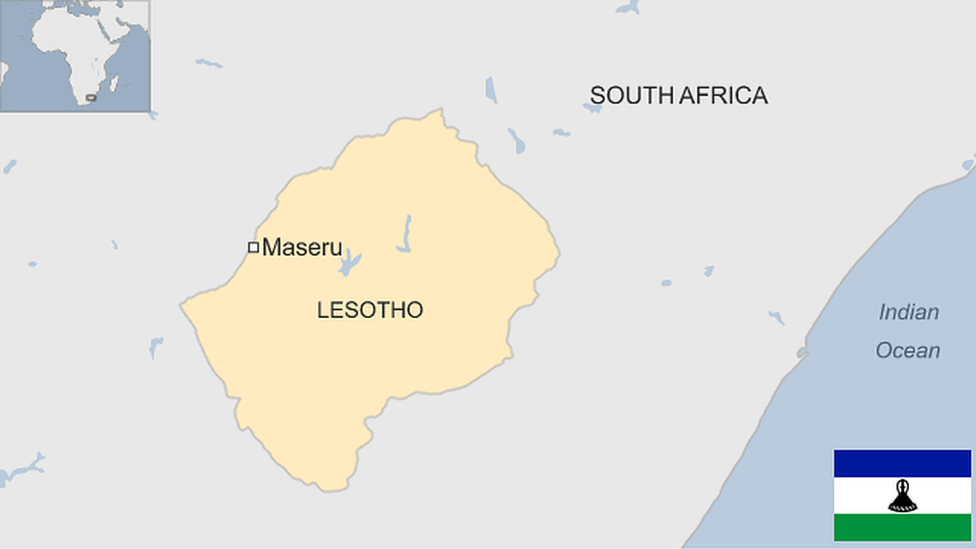South Africa country profile
- Published
This page is no longer being updated. It was last updated on 9 July 2024

South Africa has one of the continent's biggest and most developed economies.
For some 40 years it was ruled by a white minority government, when the National Party came to power in 1948 and imposed its policy of apartheid, which legally institutionalised previously existing racial segregation.
After decades of international isolation, armed opposition and mass protests, the discriminatory laws began to be repealed from the late-1980s onwards. The country held its first universal elections in 1994.
The democratically-elected leadership encouraged reconciliation and set about redressing social imbalances, but the economy has struggled.
In 2022, the World Economic Forum, external warned that South Africa risked state collapse, with record unemployment levels, high crime rates, unsustainable state spending, mismanaged institutions and corruption.
Read more country profiles, external - Profiles by BBC Monitoring, external
REPUBLIC OF SOUTH AFRICA: FACTS
Capital: Pretoria (executive), Cape Town (legislative), Bloemfontein (judicial)
Area: 1,221,037 sq km
Population: 62.02 million
Languages: Zulu, Xhosa, Afrikaans, English, Sepedi, Swazi, Sesotho, Setswana, Xitsonga, Tshivenda, Ndebele
Life expectancy: 60 years (men) 67 years (women)
LEADER
President: Cyril Ramaphosa
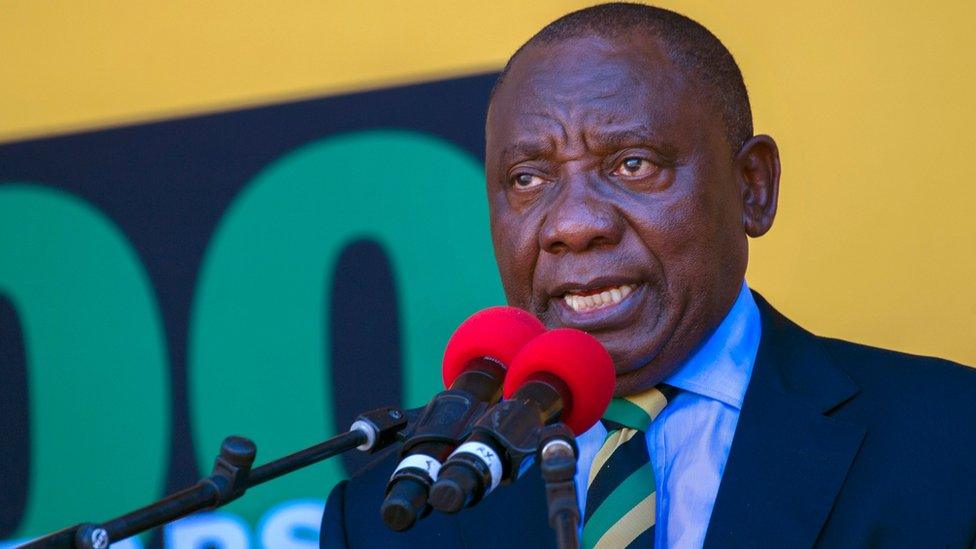
Cyril Ramaphosa was sworn in for a second term as president in June 2024, even though his party, the African National Congress (ANC), failed to secure a majority in parliament in the May 2024 elections.
The ANC, which has governed since the end of the racist system of apartheid in 1994, lost its majority for the first time after the election produced no outright winner.
The ANC got 40% of the vote, a drop of 17 percentage points, and it lost 70 seats in parliament. However, the ANC subsequently made a deal with its long-time rival Democratic Alliance (DA) which came second with 22% and three smaller parties to form a coalition government.
The free-market DA, is ideologically at odds with the ANC's social welfare traditions, and seen by many as catering to the interests of the white minority, which it denies.
But the two political opponents have agreed a common agenda of fixing the country's infrastructure, providing basic services such as water and power, and creating jobs.
The coalition is a move to the political centre, because the ANC's left-wing and populist breakaway parties rejected the invitation to join a national unity government.
At his inauguration, President Ramaphosa told South Africans the coalition was committed to reversing inequalities and growing the economy.
But he also warned that unless it addressed deep inequalities, the country could become unstable, saying despite progress, "our society remains deeply unequal and highly polarized" and added "there are toxic cleavages and an incipient social fragmentation that can easily turn into instability".
MEDIA
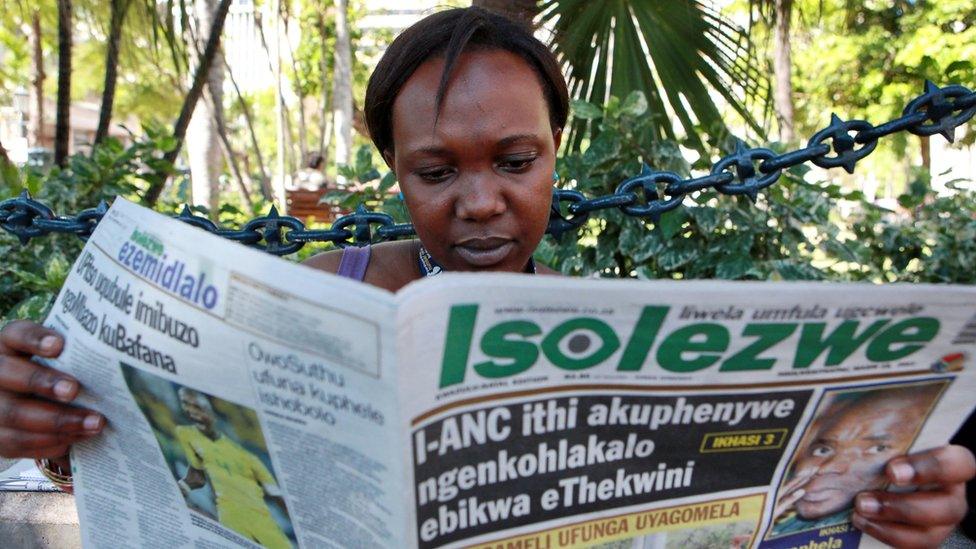
South Africa is the continent's major media player, and its broadcasters and press reflect the diversity of its people.
Established state-run and commercial TV broadcast nationally, and hundreds of thousands of viewers subscribe to satellite and cable. South Africa-based MultiChoice markets satellite pay-TV in dozens of African countries.
TIMELINE
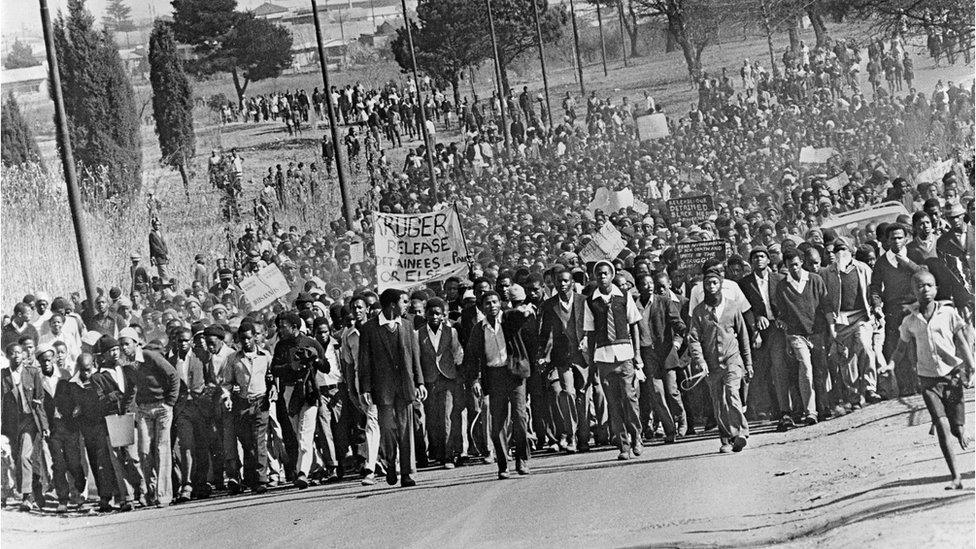
South Africa's white minority government resisted popular protests against its rule for many years
Some key events in South Africa's history:
4th Century - Migrants from the north settle, joining the indigenous San and Khoikhoi people.
1497 - Portuguese explorer Vasco da Gama lands on Natal coast.
1652 - Jan van Riebeeck, representing the Dutch East India Company, founds the Cape Colony at Table Bay.
1795 - British forces seize Cape Colony from the Netherlands. Territory is returned to the Dutch in 1803; ceded to the British in 1806.
1816-1826 - Shaka Zulu founds and expands the Zulu empire, creates a formidable fighting force.
1835-1840 - Boers leave Cape Colony in the 'Great Trek' and found the Orange Free State and the Transvaal.
1867 - Diamonds discovered at Kimberley.
1877 - Britain annexes the Transvaal.
1879 - British defeat the Zulus in Natal.
1880-81 - Boers rebel against the British, sparking the first Anglo-Boer War. Conflict ends with a negotiated peace. Transvaal is restored as a republic.
1880s - Gold is discovered in the Transvaal, triggering a gold rush.
1899 - Second Anglo-Boer War begins.
1902 - Treaty of Vereeniging ends the second Anglo-Boer War. The Transvaal and Orange Free State are made self-governing colonies of the British Empire.
1910 - Formation of Union of South Africa by former British colonies of the Cape and Natal, and the Boer republics of Transvaal, and Orange Free State.
1912 - Native National Congress founded, later renamed the African National Congress (ANC).
1913 - Land Act introduced to prevent black South Africans, except those living in Cape Province, from buying land outside reserves.
1914 - National Party founded.
1919 - After World War One, the former German territory of South West Africa, now Namibia, comes under South African administration.
1948 - Policy of apartheid (separateness) adopted when National Party (NP) takes power.
1950 - Population classified by race. Group Areas Act passed to segregate blacks and whites. Communist Party banned. ANC responds with campaign of civil disobedience, led by Nelson Mandela.
1960 - 69 black demonstrators killed at Sharpeville. ANC banned.
1961 - South Africa declared a republic, leaves the Commonwealth. Mandela heads ANC's new military wing, which launches sabotage campaign.
1960s - International pressure against government begins, South Africa excluded from Olympic Games.
1964 - ANC leader Nelson Mandela sentenced to life imprisonment.
1970s - More than three million people forcibly resettled in black "homelands".
1976 - More than 600 killed in clashes between black protesters and security forces during uprising which starts in Soweto.
1984-89 - Township revolt, state of emergency.
1989 - FW de Klerk replaces PW Botha as president. Public facilities desegregated. Many ANC activists freed.
1990 - Ban on ANC ends. Nelson Mandela released after 27 years in prison. Namibia becomes independent.
1991 - Start of multi-party talks. De Klerk repeals remaining apartheid laws, international sanctions lifted. Major fighting between ANC and Zulu Inkatha movement.
1994 - ANC wins first non-racial elections. Nelson Mandela becomes president, heading a Government of National Unity. Commonwealth membership restored, remaining sanctions lifted. South Africa takes seat in UN General Assembly after 20-year absence.
1996 - Truth and Reconciliation Commission chaired by Archbishop Desmond Tutu begins hearings on human rights crimes committed by former government and liberation movements during apartheid era.
1998 - Truth and Reconciliation Commission report brands apartheid a crime against humanity and finds the ANC accountable for human rights abuses.
2010 - South Africa hosts the World Cup football tournament.
2013 - Nelson Mandela dies, aged 95.
2014 - Paralympics athlete Oscar Pistorius - nicknamed the ''Blade Runner'' because of his prosthetic limbs - is sentenced to five years in jail for killing his girlfriend.
2018 - President Zuma resigns under pressure from the governing ANC over corruption charges, which chooses veteran trade unionist and businessman Cyril Ramaphosa as his successor.
2022 - World Economic Forum warns South Africa risks state collapse over unsustainable government spending, high unemployment, and collapsing infrastructure.
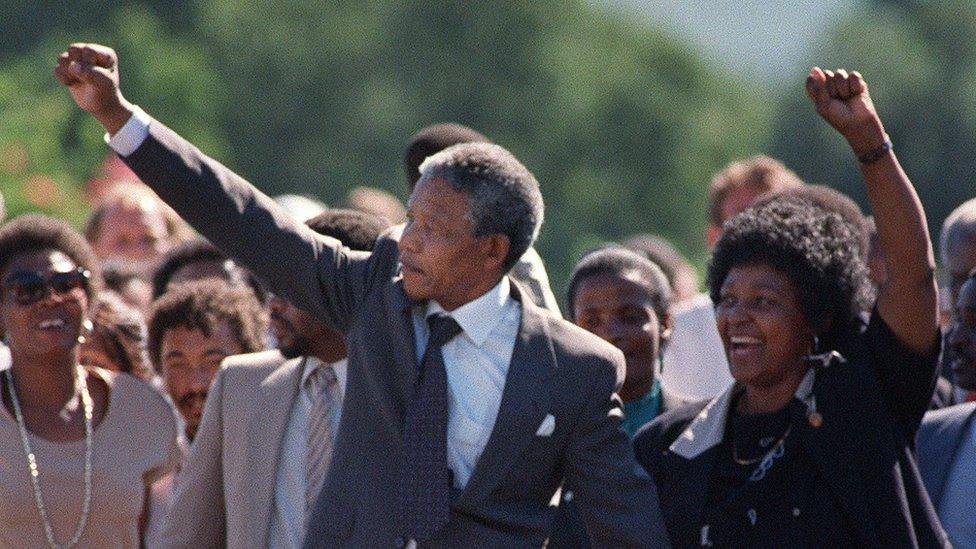
Anti-Apartheid icon Nelson Mandela walked free after 27 years in prison to become a revered statesman
Related topics
- Published10 December 2024
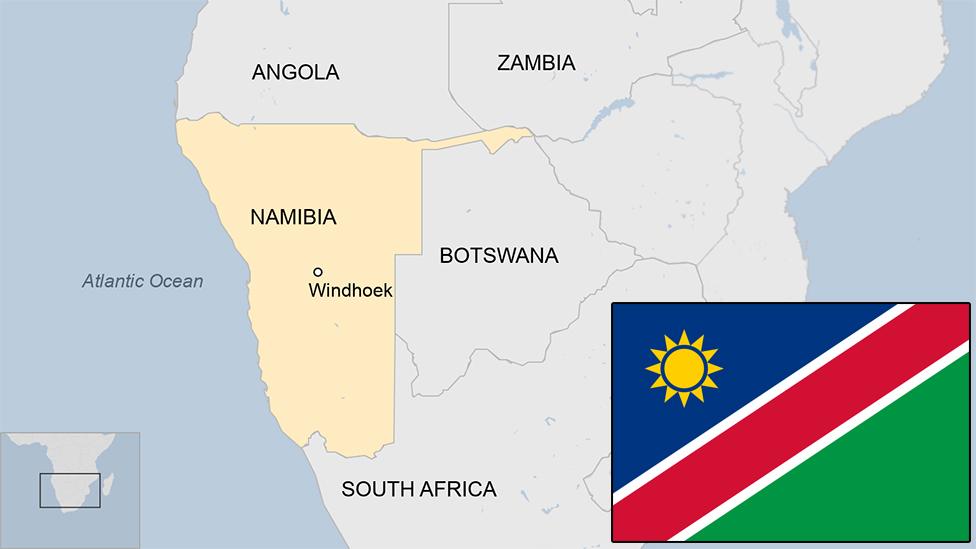
- Published11 November 2024
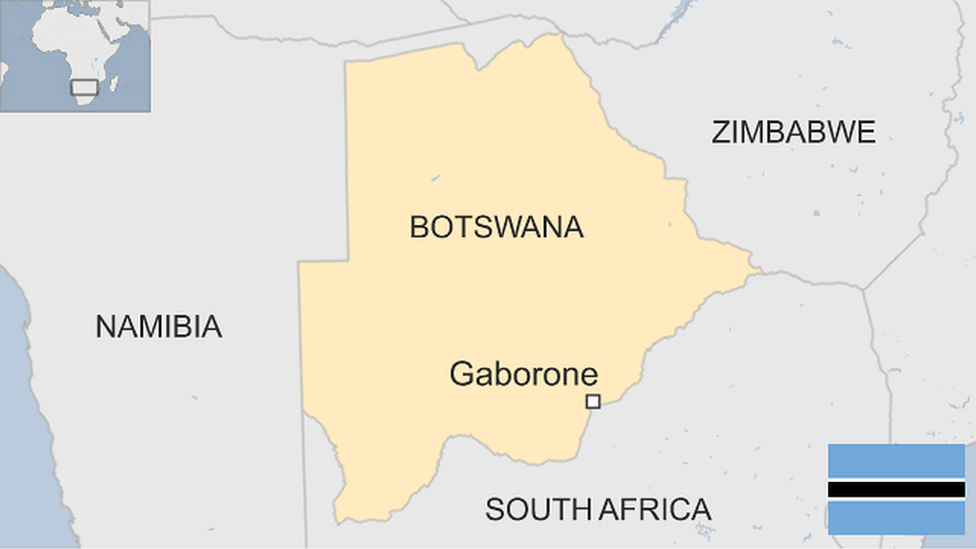
- Published30 August 2023
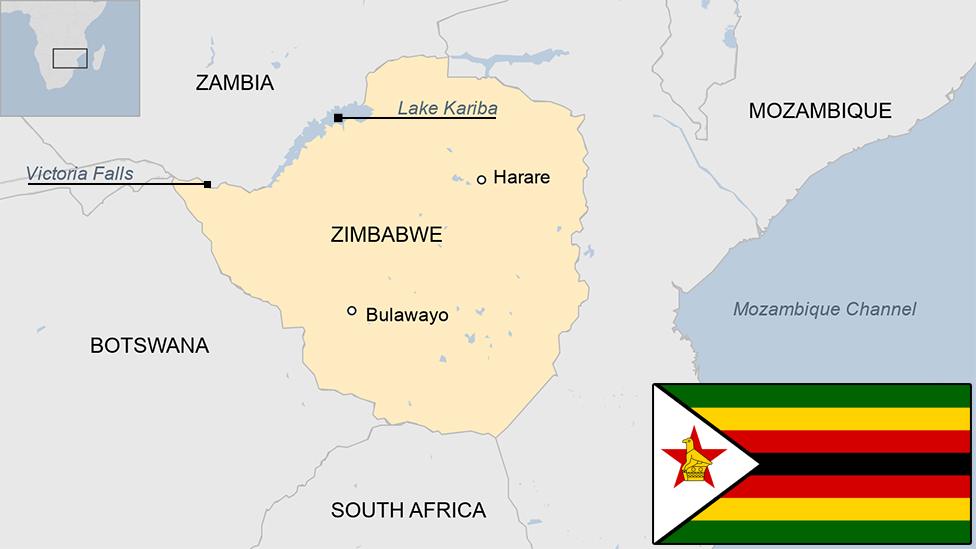
- Published25 October 2024
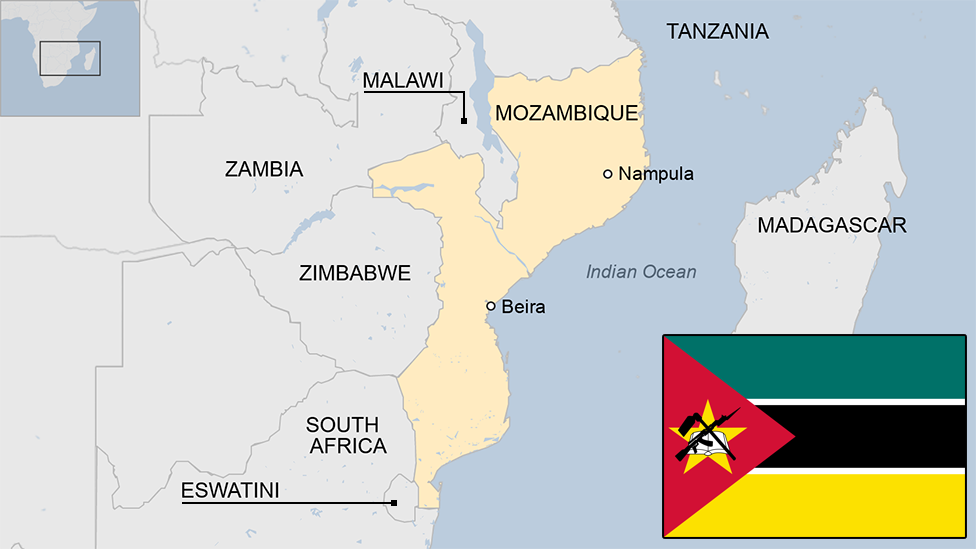
- Published12 April 2023
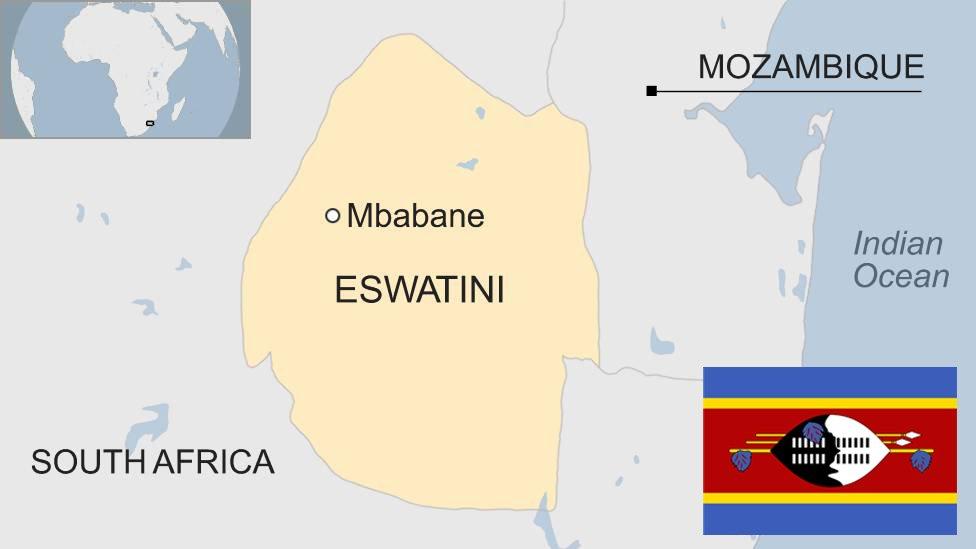
- Published24 July 2023
